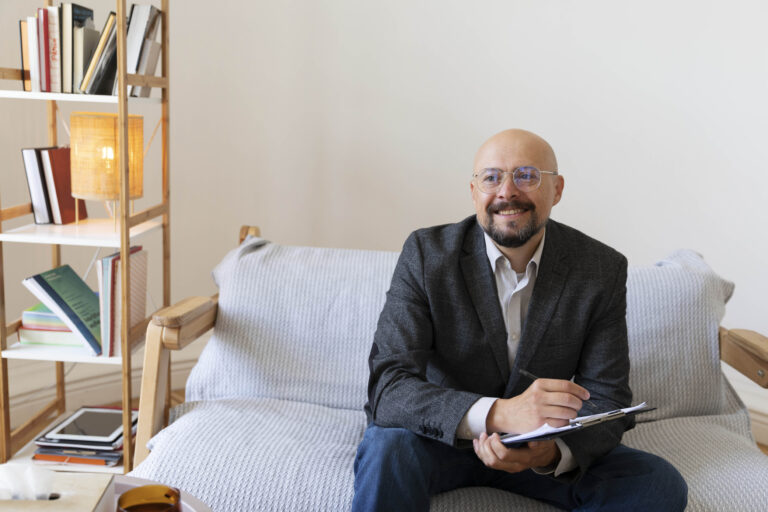What Do Psychologists Do to Test Their Theories?
What Do Psychologists Do to Test Their Theories? - Introduction
What do psychologists do to test their theories about human behaviour? This is a question that many people may have wondered at some point in time. The answer, however, may not be what one expects. Contrary to what some may believe, psychologists do not simply rely on intuition or personal experience when it comes to testing their theories. Rather, they use a variety of scientific methods to ensure the accuracy and reliability of their findings. In this blog post, we will discuss the importance of testing theories scientifically as well as some of the most common methods used by psychologists when testing their theories. Having said that, let’s get started!

Why is it Important For Psychologists to test their theories scientifically?
Theories are the bedrock of what psychologists do. They provide explanations for why we think, feel, and behave the way we do. Like other sciences, psychologists look for empirical evidence to support their theories; psychologists must rely on a variety of methods to test their theories. Fortunately, their are a multitude of ways theories are tested. Let’s take a look at a few methods.
Method 1: The Case Study
One of the most popular methods used by psychologists to test their theories is the case study. In a case study, psychologists examine a small number of individuals in great detail. This allows them to gather detailed information about the individual’s thoughts, feelings, and behaviours. Case studies are often used to investigate rare or unusual cases that cannot be studied using other methods.
Method 2: Observational Studies
Another common method used by psychologists to test their theories is observational studies. In an observational study, psychologists observe and record the behaviour of people or animals in naturalistic settings. This type of research is often used to study behaviours that are difficult or impossible to manipulate in a laboratory setting.
Method 3: Correlational Studies
Correlational studies are another type of research method used by psychologists to test their theories. In a correlational study, psychologists examine the relationships between two or more variables. This type of research is often used to study behaviours that cannot be manipulated by the researcher.
Method 4: Experimental Studies
Experimental studies are the most popular type of research method used by psychologists to test their theories. In an experimental study, psychologists manipulate one or more variables (the independent variable) and measure the effect on another variable (the dependent variable). Experimental studies are often used to study cause-and-effect relationships.
Method 5: Survey Research
Survey research is another common method used by psychologists to test their theories. In a survey, psychologists collect data from a large number of people by administering questionnaires or interviews. Survey research is often used to study relationships between variables that cannot be manipulated by the researcher.
Method 6: Longitudinal Studies
Longitudinal studies are another type of research method used by psychologists to test their theories. In a longitudinal study, psychologists collect data from the same individuals over a period of time. This type of research is often used to study changes in behaviour over time.
Method 7: Cross-Sectional Studies
Cross-sectional studies are another type of research method used by psychologists to test their theories. In a cross-sectional study, psychologists collect data from a large number of people at one point in time. This type of research is often used to study relationships between variables. This means that researchers can examine how different variables are related to each other without having to manipulate any variables.
Method 8: Meta-Analysis
Meta-analysis is a statistical method used by psychologists to test their theories. In a meta-analysis, psychologists combine the results of multiple studies to get a more accurate estimate of the effect of a particular treatment or intervention. Meta-analyses are often used to study the effectiveness of psychological treatments and interventions.
Method 9: Systematic Reviews
Systematic reviews are another type of research method used by psychologists to test their theories. In a systematic review, psychologists critically evaluate all of the available research on a particular topic. Systematic reviews are often used to identify gaps in the existing research and to determine what future research is needed.
Method 10: Clinical Trials
Clinical trials are another type of research method used by psychologists to test their theories. In a clinical trial, psychologists test the safety and efficacy of new psychological treatments and interventions. Clinical trials are often used to study the effectiveness of new psychological treatments and interventions. The benefit of clinical trials is that they provide the highest level of evidence for the effectiveness of a particular treatment or intervention.
Conclusion
All in all, these are just a few of the many methods that psychologists use to test their theories. Each method has its own strengths and weaknesses, and no single method is perfect. However, by using a variety of methods, psychologists can get a more well-rounded understanding of human behaviour.
Do you have any questions about what do psychologists do to test their theories? Let us know in the comments below! Additionally, if you are interested in speaking with one of our experienced psychologists in oakville. Click here to request a consultation today!
Thanks For Reading!
We hope this article was helpful. For more info, feel free to check out some of our other blog posts down below!
- How to Study When Depressed
- 6 Things to Value That Can Improve Mental Health
- Dealing with Emotions After Divorce
- 5 Ways Stress Affects the Brain
- 10 Ways of Bringing Mindfulness in Your Day
- Am I Introverted or Depressed
- 9 Ways on How to Cope with Mom Guilt
- 9 Tips to Cope With Losing a Loved One
- 10 Tips to Recover From Being Emotionally Drained
- How to Prepare for Your First Couples Counselling Session
- 10 Tips to Help You Deal With Stress from Work
- Does an Adult Need a Psychoeducational Assessment
- What Do Psychologists do to Test Their Theories
- 6 Tips on How to Find a Good Psychotherapist
Additional Resources
To learn more about our services that we offer at Cedarway Therapy check out the resources down below!
- Psychologist Oakville
- Psychologist Hamilton
- Psychologist Toronto
- Psychologist Mississauga
- Couples Counselling Oakville
- EMDR Therapy Toronto
- ADHD Diagnosis Ontario
- Virtual Therapy Ontario
- Online Therapy Ontario
- Counselling for Addiction
- Trauma Counselling
- Grief Counselling Toronto
- Registered Clinical Counsellor
- Child Psychologist




